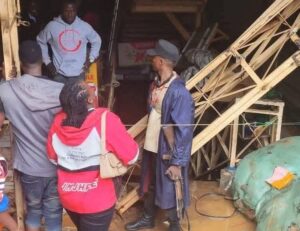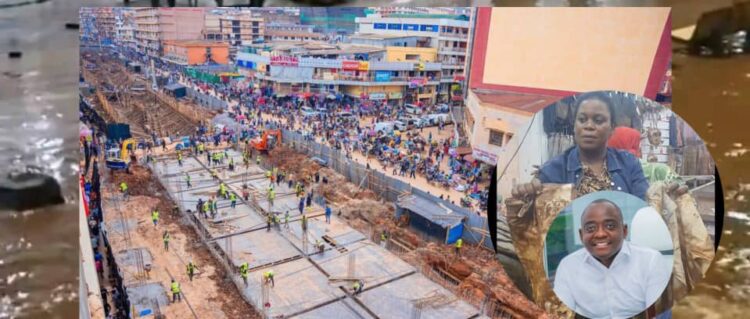By Leonard Kamugisha Akida,
KAMPALA
The Engineering Registration Board (ERB) of Uganda has warned that the ongoing construction works on Nakivubo Channel pose serious risks due to non-compliance with established engineering standards and procedures.
“Undertaking such a major infrastructure project without adherence to established engineering standards and procedures poses serious risks and could lead to catastrophic consequences,” said Prof. Eng. Henry Mwanaki Alinaitwe, the ERB Chairman.
ERB noted that the Nakivubo Channel is a critical urban drainage corridor that discharges stormwater into the Lake Victoria basin and spans one of Kampala’s largest catchment areas. The Board emphasized that any redevelopment of the channel must follow mandatory environmental and technical assessments.
“Nakivubo Channel is a critical urban drainage corridor discharging into the Victoria Basin and spanning one of the largest catchments in Kampala. Such a project must be undertaken after requisite mandatory studies and technical assessments have been carried out,” said Prof. Eng. Alinaitwe.
Last week flash floods submerged several shops and homes in downtown Kampala, destroying merchandise and claiming at least three lives. The floods were reportedly caused by blocked waterways linked to ongoing works on the Nakivubo drainage channel, being undertaken by businessman Hamis Kiggundu, commonly known as Ham.
Environmental activists, political leaders, and business owners have previously criticized the project, arguing that it lacks approval from key authorities such as the National Environment Management Authority (NEMA) and Kampala Capital City Authority (KCCA). There are also allegations that the contractor has deviated from the approved construction plan.

Despite mounting concerns, government officials and President Yoweri Museveni have continued to support the project, describing it as part of the city’s modernization drive.
In a letter seen by Parrots Media, the ERB has written to KCCA Executive Director Sharifah Buzeki, requesting comprehensive technical and professional information regarding the redevelopment project. The Board specifically demanded details in four key areas:
1. Design Team Competence and Suitability: Identities and registration status of engineers and firms engaged in the design, supervision, and construction of the project.
2. Design Considerations and Intended Purpose: The design basis, key considerations for channel improvement, drainage capacity, flood risk modeling parameters, and integration with solid waste management systems.
3. Environmental and Basin Discharge Framework: Measures to ensure compliance with national water discharge standards and NEMA and Directorate of Water Resources Management (DWRM) guidelines.
4. Futuristic and Adaptive Design Measures: Provisions for climate resilience, increased runoff, and flexibility for future modifications due to rapid urbanization.
KCCA has been given one month to respond to the Board’s inquiries.
Prof. Eng. Alinaitwe said the ERB remains ready to offer professional guidance to ensure the project meets both local and international engineering standards.
“The Board remains committed to working collaboratively with KCCA and all relevant stakeholders to promote sound engineering practice and safeguard public interest,” he stated.








































